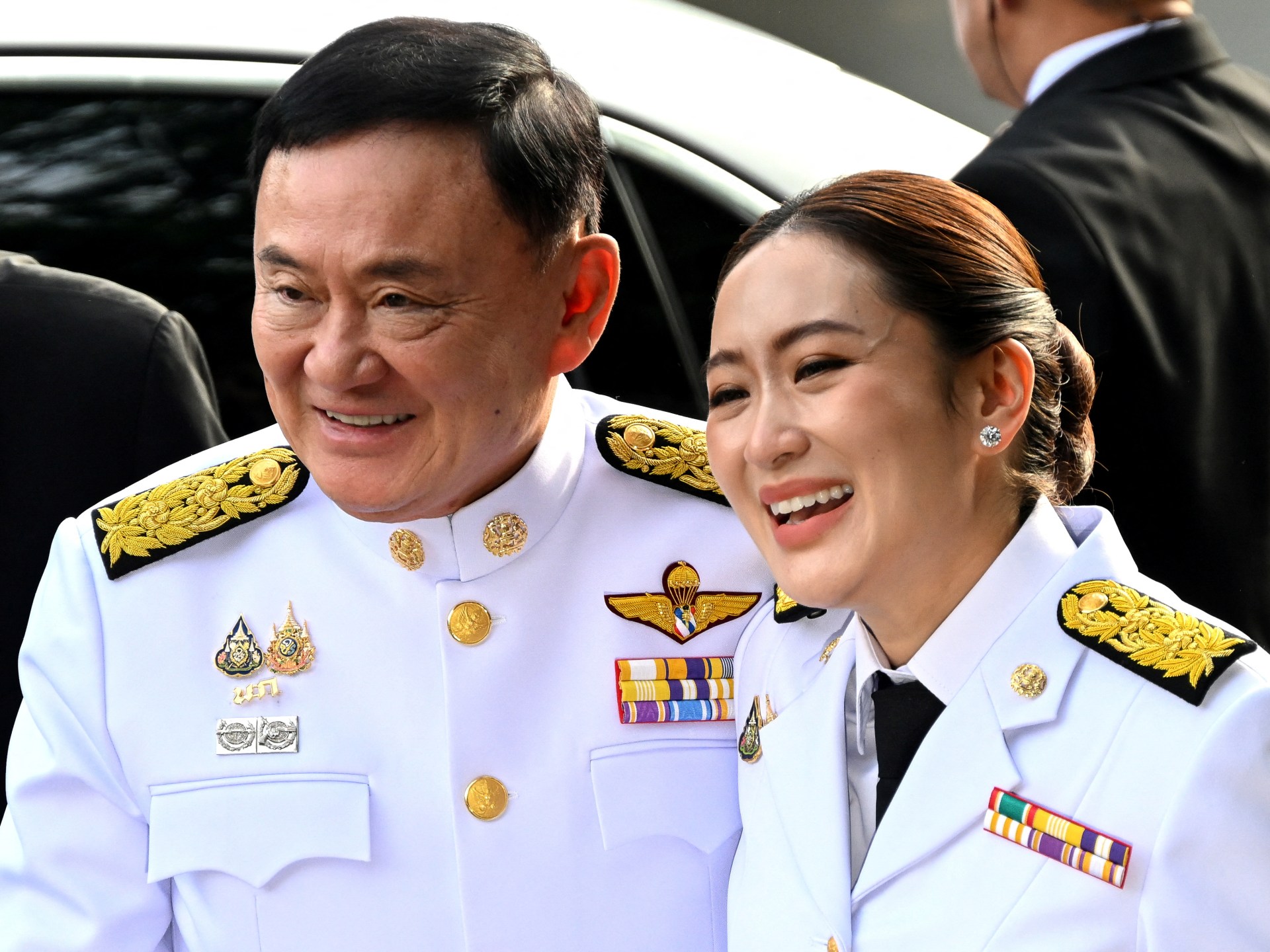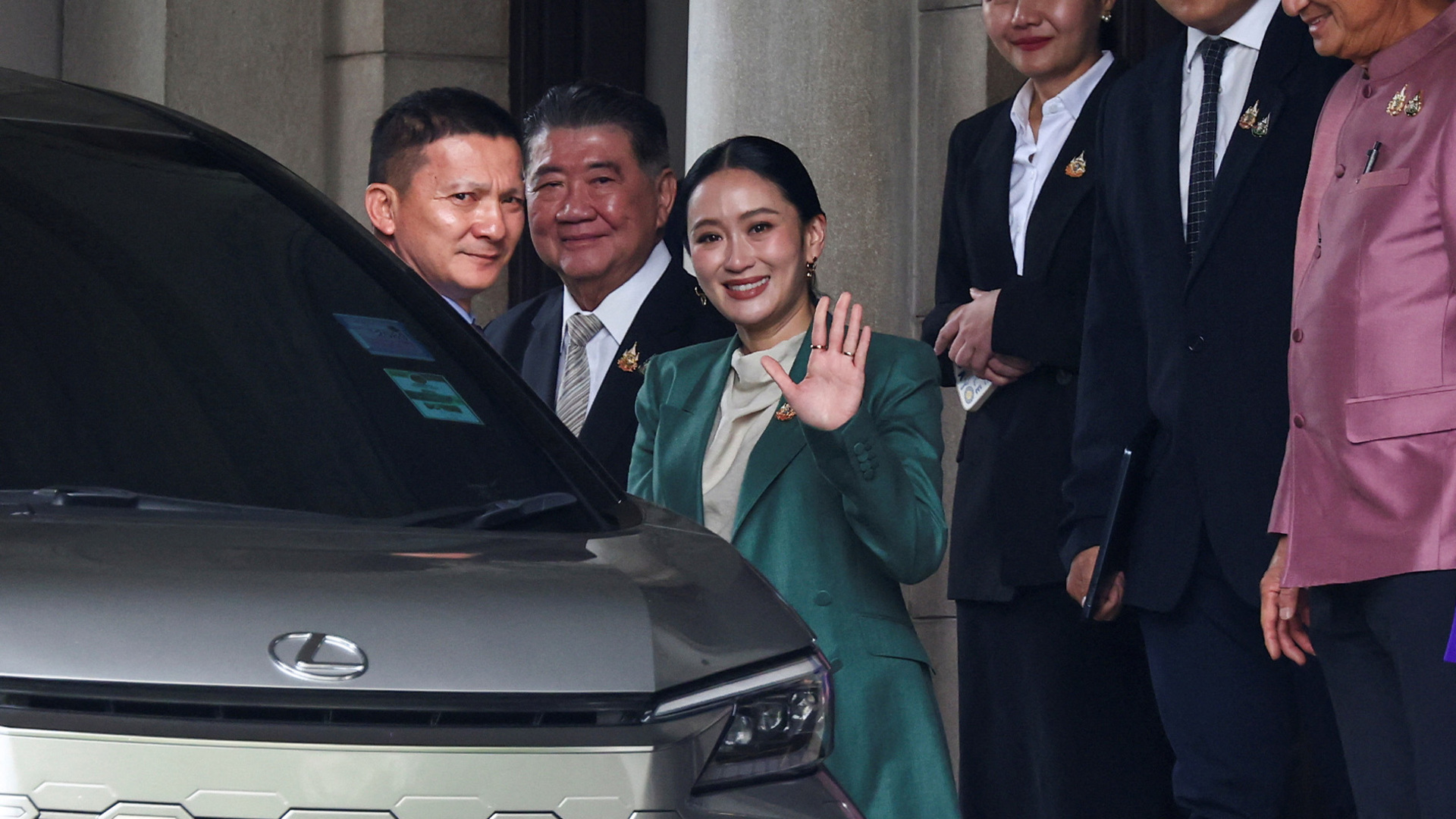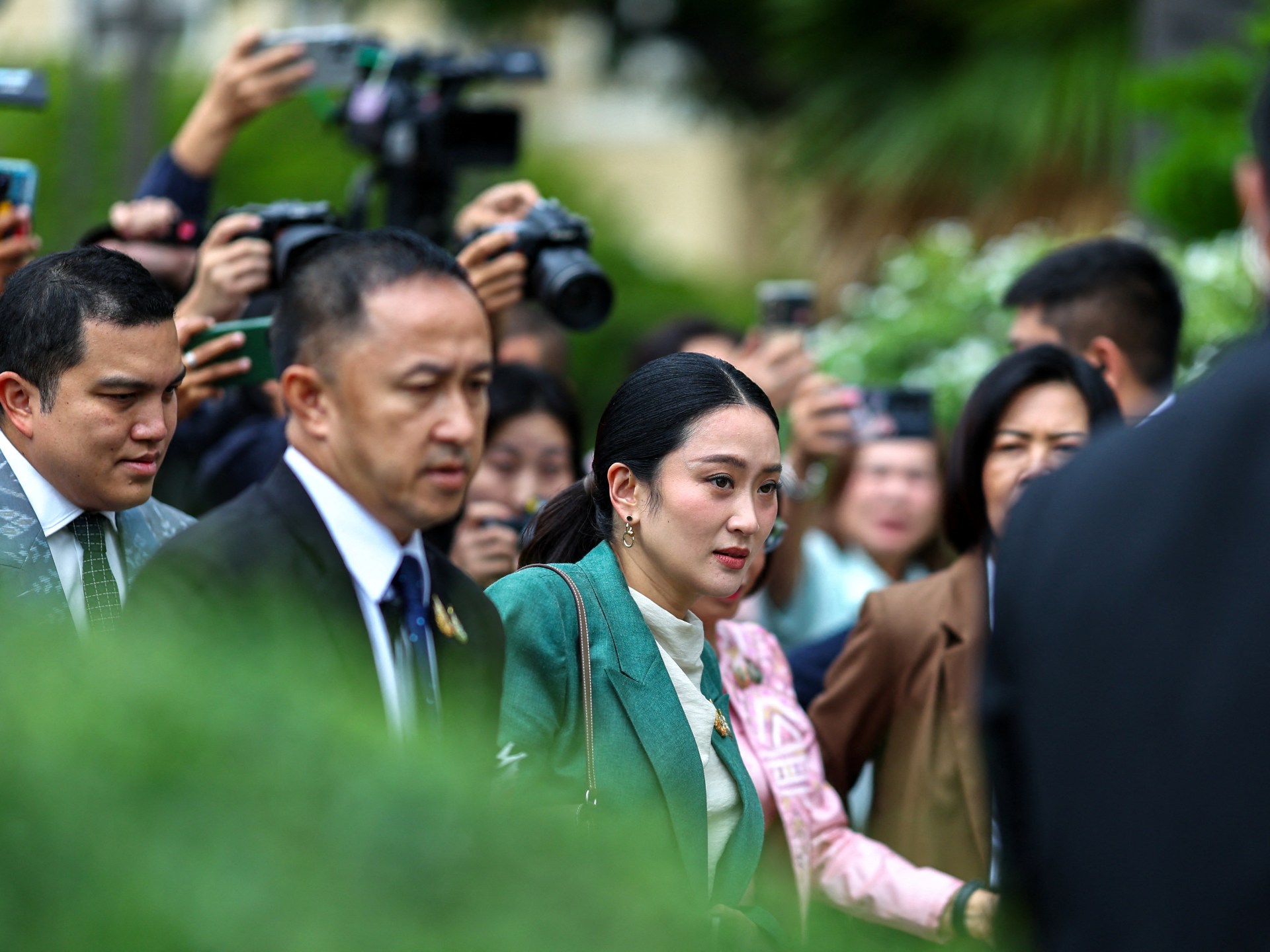Thai court to rule on suspended PM Paetongtarn Shinawatra’s dismissal | News
Bangkok, Thailand – Thailand’s Constitutional Court is to decide whether to remove suspended Prime Minister Paetongtarn Shinawatra from office over a phone call with Cambodia’s former leader in a ruling that could deal a fatal blow to the embattled Shinawatra dynasty and plunge the Southeast Asian kingdom into political turmoil.
An unfavourable verdict for Paetongtarn on Friday would make her the fifth prime minister since 2008 to be stripped of office by Thailand’s judges, who critics say defend the interests of the country’s royalist-military establishment.
The move could also potentially pave the way for early elections.
Friday’s ruling is also the second in three high-stakes court cases against Paetongtarn, 39, and her father, former Prime Minister Thaksin Shinawatra.
The 76-year-old billionaire, who is a hero to the country’s rural poor and who was ousted in a military coup in 2006, dodged a jail sentence last week when he was acquitted of insulting the country’s powerful monarchy.
But he still faces another case relating to his return to Thailand in 2023 after 16 years in self-imposed exile, which could land him back in prison.
Even if Paetongtarn survives, analysts said the saga, as well as the failure of her Pheu Thai party-led coalition to deliver on key economic pledges, has left the Shinawatra brand in peril.
“I think that the Shinawatra brand is done for,” said Napon Jatusripitak, visiting fellow and acting coordinator of the Thailand Studies Programme at the ISEAS-Yusof Ishak Institute.
“Pheu Thai depends very much on the Shinawatra legacy. … Even the charismatic leadership that Thaksin is often associated with has been chipped away by Paetongtarn’s naivete that has been put on public spectacle on a global scale,” he said, referring to her leaked conversation with former Cambodian Prime Minister Hun Sen.
‘A political case’
During the call, which took place in May after deadly border clashes between Thai and Cambodian forces, Paetongtarn was heard kowtowing to Hun Sen, a longtime friend of her father’s, and calling him “uncle” while criticising a senior Thai army commander and describing him as an “opponent”.
The comments caused a public outcry in Thailand with some Thais accusing her of treason. Paetongtarn apologised for her remarks, but the Constitutional Court took up a petition that accused her of ethical misconduct and suspended her pending a review of the case.
The border conflict, meanwhile, spiralled, killing dozens of people and displacing tens of thousands on both sides of the border.
“Judicial intervention has long shaped Thailand’s politics,” Khemthong Tonsakulrungruang, constitutional law scholar at Chulalongkorn University, said, noting how the courts had also intervened to topple Thaksin-aligned prime ministers in 2008 and bar his sister, Yingluck, from office after a coup in 2014.
“Whether [Paetongtarn] survives the court’s judgement or not, the outcome will not hinge on legal arguments but on political instructions,” Khemthong said. “This has never been a matter of law. It is, and always has been, a political case.”
It does not help Paetongtarn that the controversy also has taken place at a time when Pheu Thai’s popularity has been plummeting. In its rocky two years in government, the party has been unable to reset the economy or drive through key policies, including raising the minimum wage, legalising casinos and completing a much-lauded cash handout programme.
Public anger has been seething too over Pheu Thai’s decision to strike a deal with royalist-, military-backed parties to take office in 2023.
During that year’s vote, Pheu Thai came in second to the progressive youth-led Move Forward, but the latter was prevented from forming a government by the conservative-controlled Senate.
It was that same power-sharing deal that saw Thaksin return to Thailand.
Upon his arrival, the politician, who had been sentenced in absentia to eight years on charges of corruption, was sent to jail to serve his sentence. His sentence was reduced by King Maha Vajiralongkorn to one year, but during his first night, he was transferred to a hospital on medical grounds. He spent six months in a hospital suite, after which he was released on parole.
Now, the Supreme Court is to rule on whether his hospital stay was justified in a case that could see him sent back to prison to serve his sentence.
“Thaksin had the moral high ground of being overthrown, from being democratically elected, but he gave up that moral high ground by making a deal with the establishment,” said Thitinan Pongsudhirak, a professor and senior fellow of the Institute of Security and International Studies at Chulalongkorn University’s Faculty of Political Science.
“He’s given up, he’s given in, and I think that the Shinawatra brand now is politically spent.”
But it’s not just the Shinawatras that the conservative forces are after, Thitinan said.
“They’re going after any threat that they see that wants to institute reforms and wants to modernise Thailand. And this is why Thailand has been stuck for the last two decades. Until Thailand can get out of this straightjacket, whereby elected governments get overthrown, through manipulation, subversion, while the autocratic forces that do the overthrowing cannot get elected, it will remain so,” he added.
‘A real-life Squid Game’
Indeed, if Paetongtarn is removed, Thailand could again be in for a period of prolonged uncertainty. That is because the current constitution, drafted under military supervision, allows only politicians who had been nominated for prime minister by their parties before the 2023 elections to take power.
Pheu Thai may put up their final eligible candidate for premier – Chaikasem Nitisiri, a Thaksin loyalist and former justice minister.
Other candidates come from the conservative parties, including Anutin Charnvirakul of the Bhumjaithai Party and Prayuth Chan-ocha, formerly of the United Thai Nation (UTN) Party, who led the 2014 coup and then ruled Thailand for nine years. Prayuth is currently a member of the Privy Council, and he would need to step down to return to politics.
Napon of the ISEAS-Yusof Ishak Institute said he believes the royalist-military establishment, after removing Paetongtarn, could be manoeuvring to install a new coalition with Pheu Thai but with the party “relegated to a sort of a junior partner in the coalition” under a conservative leadership “despite them bringing the most seats”.
“Pheu Thai could accept that kind of arrangement given that Thaksin still has a pending case pertaining to his hospital stay,” Napon said. “In the worst case scenario, he could be sent back to serve his time in prison. That could end up being used as leverage to force Pheu Thai back into an unequal power-sharing arrangement with the conservatives once again.”
The continued conservative stranglehold on power has dismayed millions of voters, especially young Thais who say their votes and their aspirations for a greater stake in their country’s future have been ignored.
“Thai democracy exists largely on paper,” Pannika Wanich, a former Move Forward legislator who has been given a lifetime ban from politics, told Al Jazeera.
“Thai politics resembles a real-life Squid Game. Prime ministers are eliminated one after another until the game master gets the player they want. The rules are rigged – and the normal principles of democracy don’t apply.”


